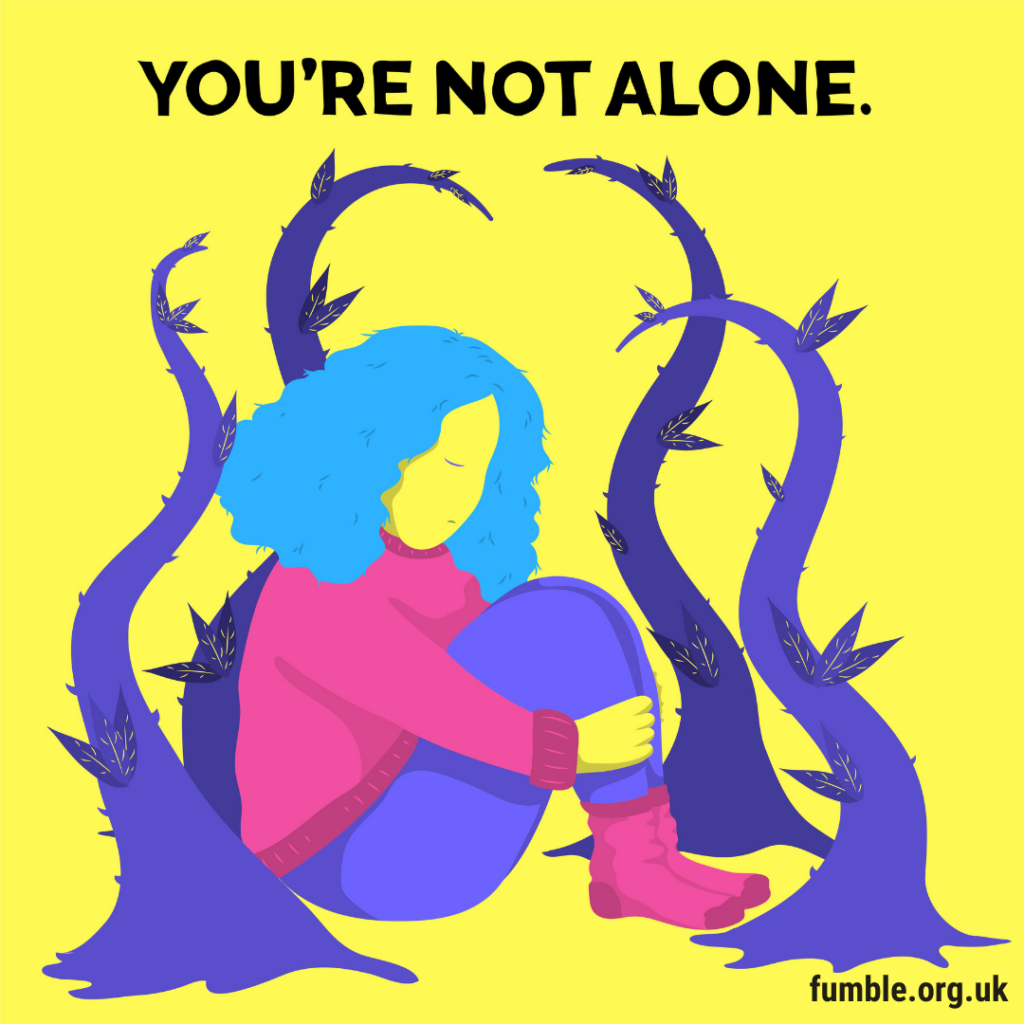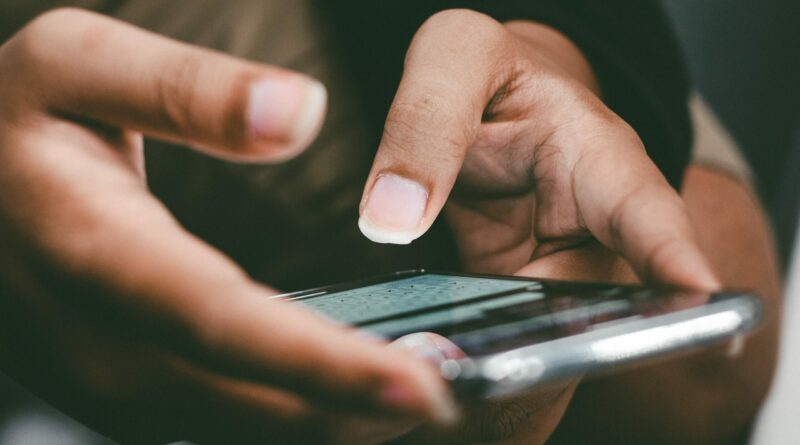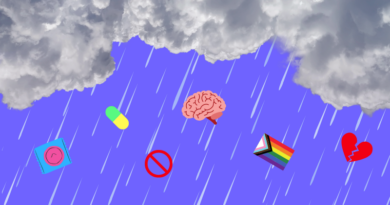Sexting and sending nudes
A Fumble guide to sexting and sending nudes, and where to get support if you need it
Sexting and sending nudes are ways to describe flirting online. You may have heard of ‘sexting’, which usually means sending sexually explicit messages. That could be a text, or photos (often called ‘nudes’). Some people just use the phrase ‘sending nudes’, which usually specifically refers to sending naked/semi-naked photos or videos of yourself to someone else.
It can be lots of fun to flirt online! Sometimes people find it easier to talk about what they like sexually or to share intimate feelings over messages, instead of face-to-face. Talking about sex and fantasies can sometimes feel awkward. Doing it via messages can make people feel more comfortable. Sometimes people also want to take photos/videos of themselves. It can feel powerful and be a part of someone’s self-love. And sometimes people find it exciting and intimate to share their photos/videos with other people.
Sharing these photos/videos is where it gets a bit tricky, so we’ll run through the different points to think about: consent, the law, and where to get help if anyone needs it.
There’s lots of available support if something has gone wrong and you need support. If that’s the case, you can go straight to our section: Getting help.
Consent
As with anything sexual, consent is really important. Some people will find it fun to send and receive nudes/sexual messages. Some won’t. No-one should ever be pressured into doing something sexual they don’t want to do. This goes for sending nudes or sexual messages too.
It doesn’t matter if you’re in a relationship with that person, if you’ve had sex with them or how many times you’ve had sex with them, you don’t have to send anything. It can feel really hard to say no to someone, especially if you have feelings for them. ThinkUKnow have some tips on ways to say no if you do find it tricky.
We need to keep this in mind – how hard it can be to say no or not feel the pressure – if we’re asking someone to send nudes or sexual messages. Even if you don’t think you’re pressuring someone, that person may feel they have to send it to keep you happy or interested. This can feel complicated – how can we ask for consent when people may not give the answer they’re actually feeling! Just make sure you’re reassuring that person that you don’t expect anything and their answer won’t change how you feel about them. Even if they’ve sent something before. Reassurances go a long way to help this situation.
Checking in before sending nudes or sexual messages is also important. It may be that you think it’s fun or not a big deal, but we don’t know how someone else feels about receiving nudes or sexual messages unless we ask them. They may find it upsetting or offensive, so make sure to check in before.
This may feel a bit trickier when it comes to long-term, more established/committed relationships, where it may not feel necessary to check every single time. Perhaps you’re already in a habit of sending nudes/sexual messages, or perhaps it’s a ‘surprise treat’. This just needs some thought about the relationship you have with that person and, most importantly, reflecting and listening to the other person if you do overstep the line.
What about the law?
There are a few different age restrictions when it comes to the law and sex.
It’s illegal to have (a physical copy or on your phone/laptop) or send naked/semi-naked photos or videos of someone under the age of 18. This is because someone under the age of 18 is a child, in the eyes of the law. It means the images are sexual photos or videos of a child.
It’s really important to know that this law is there to protect children and young people, not to punish or criminalise them.
For a bit of context: this particular part of the law was passed in 2003, before camera phones were so commonplace and easily available. Now the majority of people own a smartphone, but they didn’t back then. In 2003, it wasn’t commonplace or easy for young people to take photos of themselves, never mind sending them to someone else so easily. Technology has changed things very quickly!

To help bring that law up to date, Outcome 21 was created. This is a handy piece of legislation that lets the police record a ‘crime’ as having happened, without needing to take any formal action.
For example, if someone under the age of 18 sent a nude of themselves to someone, and that someone shared the nude with other people without consent, the situation could be recorded in order to investigate the non-consensual sharing, without punishing the young person for sending the nude in the first place. This example is a type of image-based sexual abuse.
What to do if your nude is shared around?
This is a form of image-based sexual abuse (also known as ‘revenge porn’). Other examples are:
- Someone taking a naked/semi-naked photo or video of someone else without their knowing or their consent
- Uploading a naked/semi-naked photo or video online without that person’s consent
- Sharing a naked/semi-naked photo or video with other people, via messages or in-person
If someone experiences image-based sexual abuse, they are never to blame. This is a horrible form of abuse, and anyone experiencing it deserves kindness, empathy, and support to get through it and build their self-esteem back up.
If this happens to you, please ask for help (see our list below). You don’t have to deal with this alone.
Getting help

Sometimes knowing that it’s illegal to send nudes under the age of 18 means that young people don’t seek help when something goes wrong. But the law is there to protect children and young people, not to punish them. It’s really important that, if something goes wrong and your nude is shared without your consent, you know there’s help and support for you. You’re not the one in the wrong; the person who shared/uploaded your image without your consent is.
There’s also help and support for anyone who is receiving unwanted nudes or sexual messages. No-one should be receiving explicit photos/videos or messages that they don’t want. This goes back to the importance of consent. Being sent unwanted nudes can make us feel angry, upset, offended, shocked, confused and many more negative feelings, and it’s important you have space to express that. Make sure you’re talking to people. Again, you don’t have to deal with it alone. Unwanted nudes or sexual messages can also be reported to the platform itself and/or through the organisations below.
It can sometimes feel difficult to talk to adults about this, like parents/carers and teachers. If that’s the case, there’s lots of support online. These organisations support young people in lots of different difficult situations, like image-based sexual abuse, and they’ll be able to help. They can also help you get the image under control without necessarily investigating the people responsible, just in case someone’s worried about getting someone else into trouble.
- Childline – a helpline and one-to-one counsellor chats to support you
- The Internet Watch Foundation – anonymously report any images online
- CEOP – make a report if you’ve experienced any online sexual abuse (including image abuse)
There’s also help and support if you’re 18 or over. Regardless of age, if someone has shared a naked/semi-naked photo of you without your consent, they’re breaking the law.
If you’re 18+, you can get help from:
- The Revenge Pornography Helpline
- The Mix have a helpline, a crisis messenger service, and a one-to-one chat service
Childline: “No-one has the right to share a nude of you.”
What to do if someone else’s nude is being shared around?
Talk to a trusted adult, or get help from any of the organisations listed above. The photo/video doesn’t have to be of you, for you to get help.
Never show the photo/video to anyone else. By sharing it, you’re becoming part of the abuse.
Remember that the person in the image is not to blame. Just as we deserve kindness, empathy and support if we experience this form of abuse, so does that person. It’s very likely they didn’t take that photo/video wanting or expecting lots of people to see it. Don’t judge them. Don’t blame them. Resist the victim-blaming culture that often surrounds sexual abuse, and give them the kindness they will need instead. Sharing images is often about generating a reaction or causing drama for that person. Take control and refuse to join in!
Other support
Read more
Last Reviewed 31 August 2022
Image Credit: Pradamas Gifarry via Unsplash





